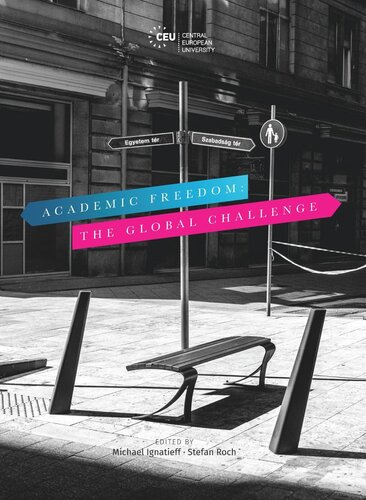

Most ebook files are in PDF format, so you can easily read them using various software such as Foxit Reader or directly on the Google Chrome browser.
Some ebook files are released by publishers in other formats such as .awz, .mobi, .epub, .fb2, etc. You may need to install specific software to read these formats on mobile/PC, such as Calibre.
Please read the tutorial at this link: https://ebookbell.com/faq
We offer FREE conversion to the popular formats you request; however, this may take some time. Therefore, right after payment, please email us, and we will try to provide the service as quickly as possible.
For some exceptional file formats or broken links (if any), please refrain from opening any disputes. Instead, email us first, and we will try to assist within a maximum of 6 hours.
EbookBell Team

5.0
78 reviewsAcademic freedom—the institutional autonomy of scientific, research and teaching institutions, and the freedom of individual scholars and researchers to pursue controversial research and publish controversial opinions—is a cornerstone of any free society. Today this freedom is under attack from the state in many countries—Russia, Turkey, Venezuela, Hungary, China—but it is also under question from within academe. Bitter disputes have erupted on American campuses, for example, about the limits of free speech and about whether liberal academic freedoms have degenerated into a form of coercive political correctness. Beyond the academy itself, among the general public, academic freedom is contested ground. As Robert Post of Yale Law School has put it, academic freedom is "the price the public must pay in return for the social good of advancing knowledge." Populist currents of political opinion are questioning the price a society pays for the freedom of its 'experts' and professors.